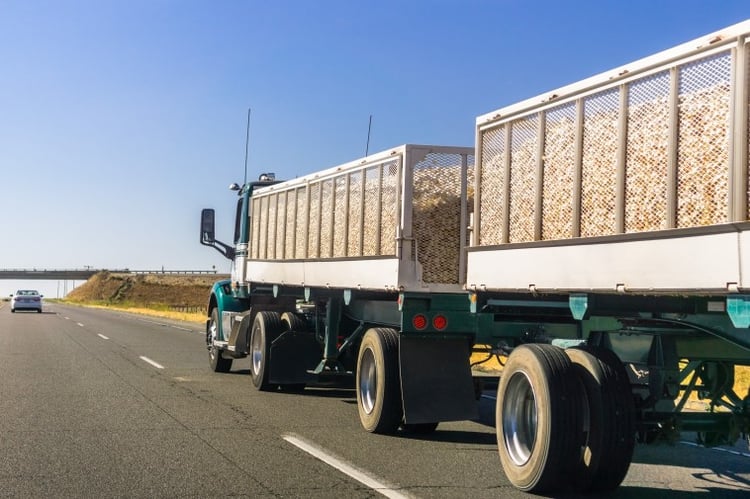
The state of California offers various tax exemptions for businesses engaged in agricultural activities, like farms and nurseries. The California agricultural tax exemption affects the sales tax charged on diesel fuel. While it’s fairly well known that farms and nurseries qualify for this exemption, it’s less known that other businesses, like trucking companies that haul ag products, can qualify when they support agricultural and horticultural operations.
Some businesses assume the only fuel tax refund available is for off road diesel. However, the California Agricultural Tax Exemption reduces the sales tax rate on diesel fuel significantly. This partial sales tax exemption can be applied at the time of purchase, assuming the correct paperwork is filed with your fuel vendor, alleviating the need to file a refund after the fact.
Unlike the exemption for off road diesel, which reduces federal and state excise taxes by a fixed amount per gallon, the partial sales tax exemption for agricultural operations reduces sales tax by 7%. The two exemptions are not mutually exclusive since they affect different types of taxes, and some businesses might even qualify for both depending upon their operations.
Who qualifies for the California agricultural tax exemption?
To qualify for California’s partial sales tax exemption on diesel fuel, the State Board of Equalization requires a business to facilitate “farming activities” or “food processing” as defined by regulation 1533.2. While these categories seem broad in scope, the regulation is fairly specific about which activities qualify.
Farming activities are defined as the business of cultivating, raising or harvesting agricultural or horticultural commodities, including:
- Transporting and delivering agricultural or horticultural commodities to the marketplace
- Operating a nursery or sod farm
- Raising, shearing, feeding, or otherwise managing animals (including delivery of feed)
- Raising or harvesting crops (including trees bearing fruits or nuts)
- Raising ornamental tress
- Harvesting agricultural or horticultural products
- Washing, inspecting, or otherwise preparing commodities for shipment
Food processing is defined as the business of processing or transporting raw product or commodities, including:
- Transporting raw product, supplies, and materials to a processing facility
- Transporting partially processed food between various divisions of the same processing entity
- Empty hauls related to the transportation of agricultural or horticultural commodities
Which activities do not qualify?
While some activities seem like they should qualify as “farming activities” or “food processing” at first glance, the State Board of Equalization gives examples of operations that are ineligible for the California agricultural tax exemption. They include, but are not limited to, the following:
- Transporting processed food products to the marketplace
- Buying and reselling plants or animals grown or raised by another party
- Harvesting evergreen trees that are more than 6 years old
- Cultivating, raising, or harvesting agricultural or horticultural products for personal use
Get the California ag exemption applied to your fuel card purchases.
Once you determine whether your business qualifies, getting the exemption on diesel fuel purchases is relatively simple. Start by contacting a fuel card company that can apply the diesel tax exemption so that your company is invoiced at the reduced sales tax rate. Make sure you complete the proper exemption certificate required by the State Board of Equalization and submit it to your vendor. The exemption should then be applied to your fuel purchases without requiring your company to file for a refund.




